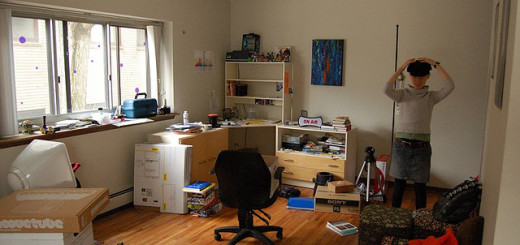Self-Criticism?
We all hear critical voices in our heads with which we engage from time to time. When we do so, at least two compete for supremacy. Gestalt therapist Fritz Perls referred to these as the Topdog and the Underdog. The Topdog is a bully who attacks us with criticism and recrimination. The Underdog placates and makes excuses. Whilst this is occurring, nothing is getting done apart from self-criticism giving ourselves headaches.
‘Sometimes I feel as if I can’t do anything right’, ‘I am not good at anything’, ‘I don’t have will power’ or ‘I am not lovable for who I am’. Do you ever find yourself muttering sentences like these? If your answer is yes, this self-critical chatter means you are, somehow, creating a negative self-image and have become your own worst enemy. You really need to know how you have come to do this, the huge cost you pay, and learn how to get over it.
Causes of Negative Self-Image and Self-criticism
Our psychological makeup is shaped by the relationships we experience, particularly during our childhood. We think we limit these effects to what we can remember. However, since this goes back as far as our conception, and how we felt in our mother’s womb this cannot be so.
Early separation from a mother through death, illness or due to conflict between our parents can be registered as ‘Something is wrong I am not wanted, I am responsible, I must be bad.’
When the adults around you talk about you in negative ways consistently, you will tend to generate a self-critical Topdog and may even believe this negative self image is YOU.
We are shaped by the ways we learn how to approach our negative feelings. Emotions such as jealousy of a sibling, disappointment when we did not get the grade we worked for, or nervousness during an exam are normal. However we learn from the adults around us to judge and label them as ‘bad’. On the one hand we aspire to goals adults tell us are impossible. These are dreams, such as to become astronauts or movie stars, or, if we come from materially poor backgrounds to become billionaires. Parents and teachers tell us that such dreams are impossible as realities – yet some do rise above the ‘reality’ society has reserved for them.
Even so, many who are successful find themselves haunted by self doubt and criticism. There appears to be a perfect image they cannot reach. They know they will always fail for not being the perfect sibling, child or student their parents would have liked them to be.
How A Negative Self-Image and Self-criticism Damages Us
What we say and what we believe of ourselves go hand in hand. Self-criticism can lead to serious depression, let alone limiting our ability to achieve our potential.
The most difficult part is that we tend to hide what we believe as our ‘loathsome’ parts. That is how we miss the opportunity of being healed through the positive feedback people give us. We simply don’t believe them, and in extreme cases can distort praise into new forms of self-criticism.
Henry Ford said:
‘Whether you think you can or you think you can’t, you are right.’
Overcoming Self-Criticism
You need to accept that you cannot really be objective. Perception is shaped through several layers of neurological, social, relational and cultural feedback loops. When you accept you cannot see the whole picture it is easier to let go of control. It is liberating to know that no belief is complete; personal, artistic or political. Were it so we would all still be living nomadic lives as hunter-gatherers. Good and bad coexist. No aspect of you needs to be disowned or projected onto others. When you realise this, you can increasingly find yourself choosing a middle way free of self-criticism.
Here are some ways to rebalance your self-image and rise above the habit of self-criticism:
- Be honest with yourself and others. The more honest you are with your friends the more you can benefit from their feedback about how you are experienced by them. Listen to your friends views about you, but be aware that they may have their own insecurities and not want you to change.
- Take distance from your self-criticising nature by asking yourself: ’What would I say to a friend who is self-critical in this way?’
- Think and write down the positive intention behind your self-criticism.
- Focus on what you can improve about yourself. Create a plan for continuous improvement that can also cope with setbacks.
- Keep a diary where you write what triggers your self-criticism as well as your successes that have worked for you. Review what you write every month.
- When the self-criticism gets louder in your head, tell yourself that you have choices, such as not to listen. It will be easier to make these choices if you remember a positive experience you felt good about yourself and engage in some activity that makes you feel good.
- Change the words you use about yourself. Research shows this improves your ability to regulate your thoughts, feelings and behavior under social stress.
- Remember that your self-critical Topdog always has a good purpose. Through more objective self-talk you can train it to carry out to better achieve its purpose without criticising you.
- Byron said ‘Always laugh when you can; it is cheap medicine.’ Approach life and its manifestations with humor.
If your daily life and relationships are affected you are likely to be suffering from depression. If so, these suggestions may not be very meaningful, you need to get professional help.
Attribution-ShareAlike 2.0 Generic (CC BY-SA 2.0)image:Stefan Insam





